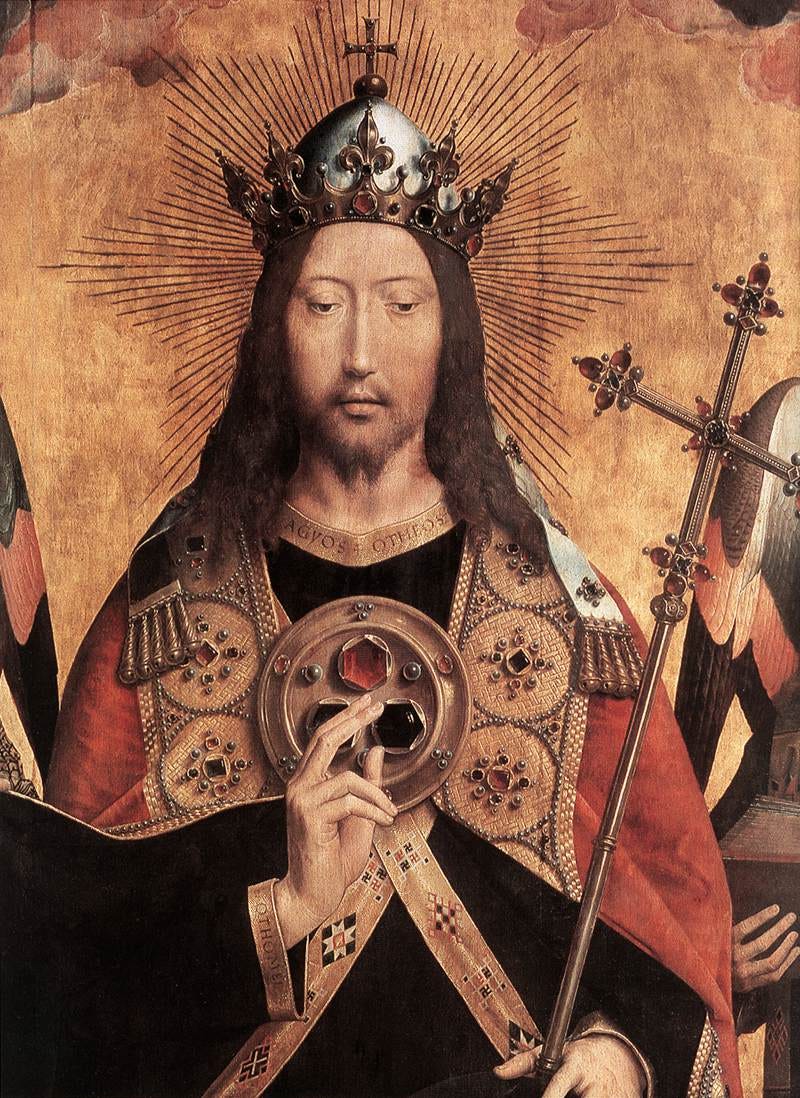Novena to Christ the King - Day 3
The Solemnity of Christ the King - November 20
Novena to Christ the King
Almighty and merciful God, you break the power of evil and make all things new in your Son Jesus Christ, the King of the universe. May all in heaven and earth acclaim your glory and never cease to praise you.
We ask this through our Lord Jesus Christ, your Son, who lives and reigns with you and the Holy Spirit, one God, for ever and ever. Amen.
Recite One Our Father, One Hail Mary and One Glory Be per day followed by the Novena Prayer:
O Lord our God, You alone are the Most Holy King and Ruler of all nations.
We pray to You, Lord, in the great expectation of receiving from You, O Divine King, mercy, peace, justice and all good things.
Protect, O Lord our King, our families and the land of our birth.
Guard us we pray Most Faithful One.
Protect us from our enemies and from Your Just Judgment
Forgive us, O Sovereign King, our sins against you.
Jesus, You are a King of Mercy.
We have deserved Your Just Judgment
Have mercy on us, Lord, and forgive us.
We trust in Your Great Mercy.
O most awe-inspiring King, we bow before You and pray;
May Your Reign, Your Kingdom, be recognized on earth.
Amen.
ENCYCLICAL OF POPE PIUS XI ON THE FEAST OF CHRIST THE KING
10. This same doctrine of the Kingship of Christ which we have found in the Old Testament is even more clearly taught and confirmed in the New. The Archangel, announcing to the Virgin that she should bear a Son, says that "the Lord God shall give unto him the throne of David his father, and he shall reign in the house of Jacob for ever; and of his kingdom there shall be no end."[12]
11. Moreover, Christ himself speaks of his own kingly authority: in his last discourse, speaking of the rewards and punishments that will be the eternal lot of the just and the damned; in his reply to the Roman magistrate, who asked him publicly whether he were a king or not; after his resurrection, when giving to his Apostles the mission of teaching and baptizing all nations, he took the opportunity to call himself king,[13] confirming the title publicly,[14] and solemnly proclaimed that all power was given him in heaven and on earth.[15] These words can only be taken to indicate the greatness of his power, the infinite extent of his kingdom. What wonder, then, that he whom St. John calls the "prince of the kings of the earth"[16] appears in the Apostle's vision of the future as he who "hath on his garment and on his thigh written 'King of kings and Lord of lords!'."[17] It is Christ whom the Father "hath appointed heir of all things";[18] "for he must reign until at the end of the world he hath put all his enemies under the feet of God and the Father."[19]
12. It was surely right, then, in view of the common teaching of the sacred books, that the Catholic Church, which is the kingdom of Christ on earth, destined to be spread among all men and all nations, should with every token of veneration salute her Author and Founder in her annual liturgy as King and Lord, and as King of Kings. And, in fact, she used these titles, giving expression with wonderful variety of language to one and the same concept, both in ancient psalmody and in the Sacramentaries. She uses them daily now in the prayers publicly offered to God, and in offering the Immaculate Victim. The perfect harmony of the Eastern liturgies with our own in this continual praise of Christ the King shows once more the truth of the axiom: Legem credendi lex statuit supplicandi. The rule of faith is indicated by the law of our worship.



